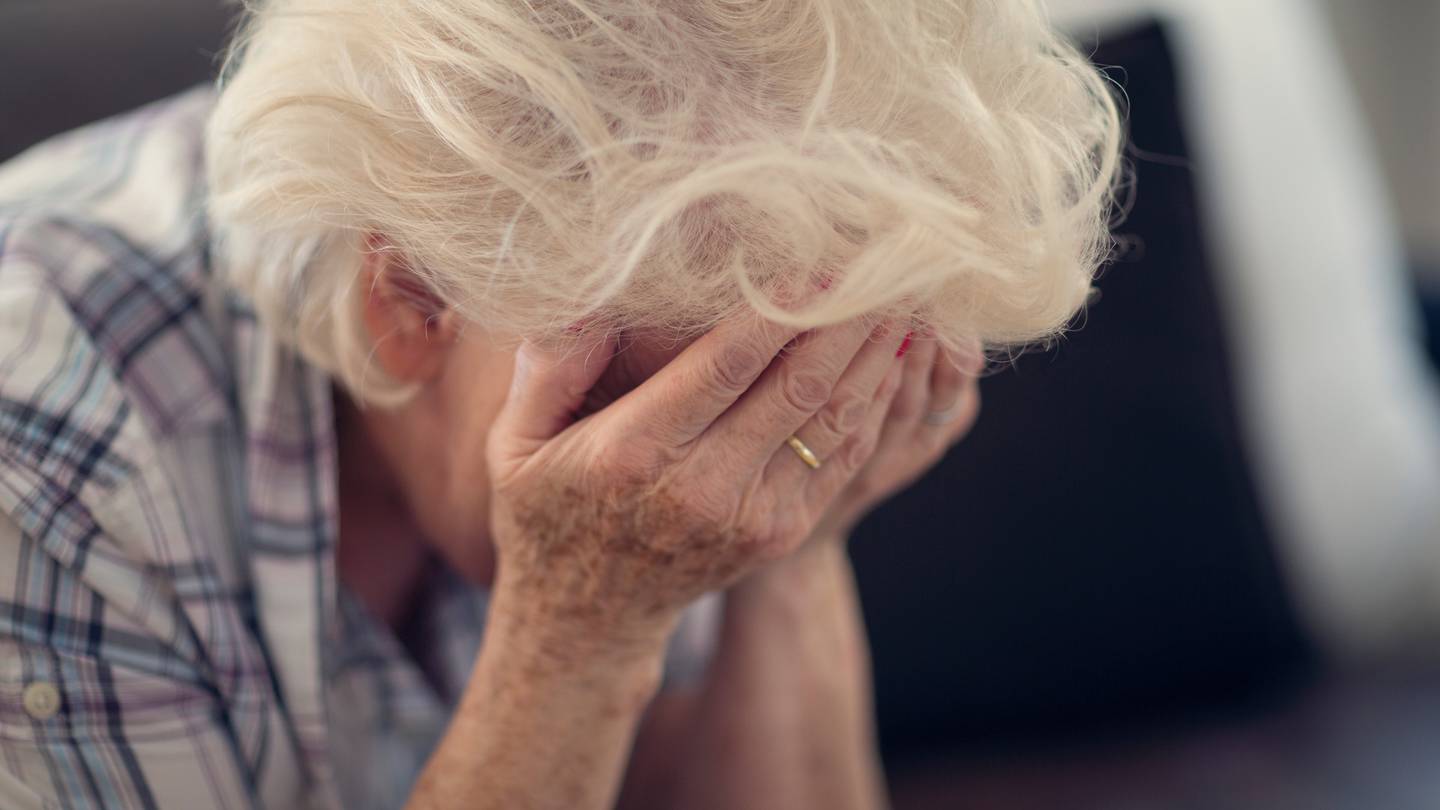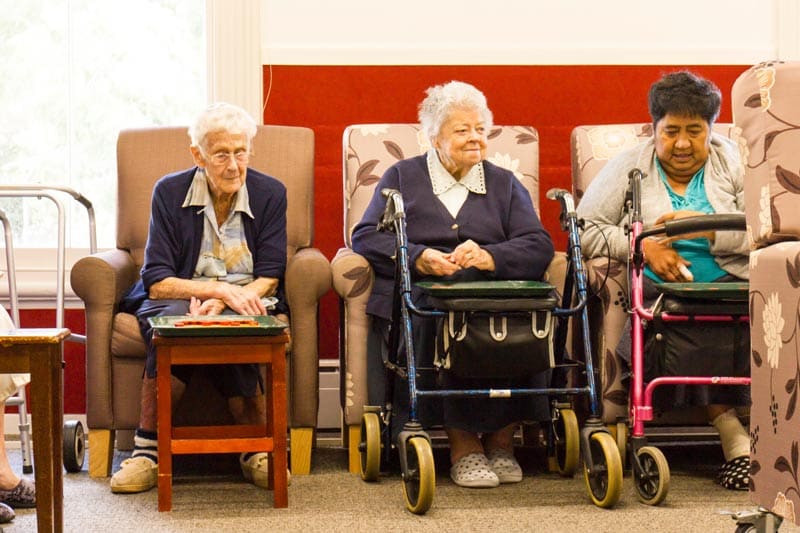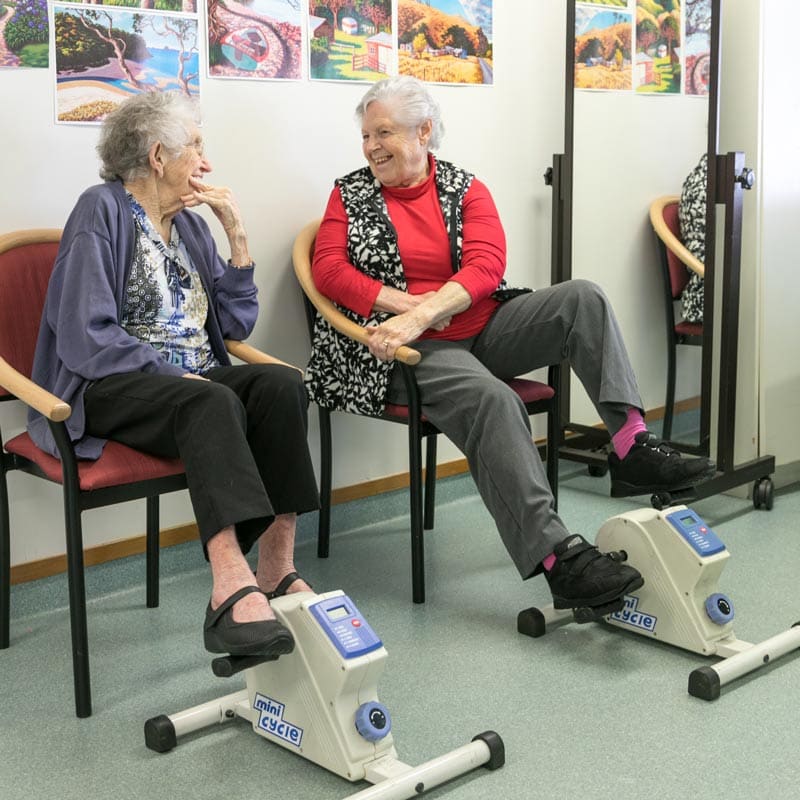
Even end of life legislation doesn’t cover people in aged care who feel “enough is enough”.
The elderly woman, suffering from dementia, had made a decision. She would no longer eat.
As her daughter-in-law put it: “In a private room, with only the television for company, she clearly decided – somewhere in the recesses of her addled brain – that enough was enough. She simply stopped eating.
“Who knows how much pain she endured from hunger pangs and dehydration but ultimately, somehow against the odds, she did take back some control of her life in the end, and decided to die.”
The full story is found on the website of Life Choice, one of those featured there in support of last year’s End Of Life Act which comes into force in November.
However, the story of the woman in aged care who, even though suffering from dementia, decided to die raises another moral and ethical dilemma for the aged care industry: what do they do when a resident opts to die and simply stops eating and drinking?
In the case of the elderly woman above, she had made three pre-dementia directives outlining her wish not to live with dementia and that all ‘life-saving’ medication and treatments were to be withdrawn if she could no longer care for herself. Her children took her at her word, the website story says, and once she was admitted into full time dementia care, somehow prevailed upon the medical people to stop all medication apart from pain relief where necessary.
However, complications arose when, after a fall, the woman had to be moved from the dementia care facility, where she had been contented, to a new, higher care facility which was unfamiliar and therefore scary to her. In the face of dislocation from her familiar environment, she immediately made her decision to stop eating.
Brien Cree, founder and executive chairman of Radius Care, says aged care facilities occasionally face the dilemma of a resident who has decided “enough is enough”.
While the case of the elderly woman above involved dementia and had the support of her family and children, in some cases it is non-dementia patients who decide to stop eating and drinking, in spite of repeated efforts by staff to tend them. Dementia patients generally have to be moved to a dedicated dementia care facility, usually because of the patients’ tendency to wander.
“Let me be clear about this, says Cree. “The aged care sector as a whole, in my view, doesn’t support voluntary euthanasia, primarily because we are all about caring for people. We focus on that and can’t want to get involved with prematurely ending anyone’s life.
“But what do we do when someone refuses to eat or drink? We have had a few people not only refuse to eat or drink – they tear out saline drips and refuse all help. We are not mandated to force-feed anyone; it’s against their rights.”
Complicating matters, says Cree, is that the families of such people are often misled by the elderly relative: “They perk up when the family are there. There’s no mystery in that; seeing their family is a lift for them.
“I found that with my own mum,” says Cree, whose 72-year-old mother was the inspiration for Radius (now with 22 aged care facilities around New Zealand) after he couldn’t find anywhere suitable after his mum suffered a stroke.
“I’d come in to visit my mum and she’d be fine, animated and interacting. But when I talked to the staff afterwards, they’d tell me she wouldn’t come out of her room and wouldn’t have dinner. When I was there, she’d do everything.
“So we get a few families, when their loved one goes into a slump or suddenly dies, who say to us: ‘She was fine when I saw her on Sunday; what have you guys done?’ So we get the blame for what some people say is poor care, even though we can’t force feed anyone.”You can understand how this happens. Those families remember how that person used to be; they want that person back.”
Cree says many take happily to aged care: “A great number of people have very fulfilling lives in our facilities and villages. We’ve had people meet and fall in love while in care and some even got married.”
The difficulty for the aged care industry, he says, is that even the End Of Life legislation does not cover the person who decides “enough is enough”.
As the daughter-in-law of the woman in the Life Choice example says, her mother-in-law would not have been helped by the new legislation: “Dementia – possibly the biggest societal challenge posed by our aging population – is not, not technically anyway, a terminal disease. There would not have been any conversation about an assisted departure for [her], despite her fervent resolve.”
It is, says Cree, a grey area not covered by legislation and which remains unclear when elderly people take matters into their own hands and refuse to eat and drink.
– Originally published by The New Zealand Herald. Republished with permission. Link

Falls are one of the biggest health hazards for elderly people living at home or in aged care.
It sounds counter-indicative but, for many of New Zealand’s elderly people, the most dangerous room they inhabit is the bedroom.
That’s because the bedroom is the last frontier for guarding against one of the most perilous events faced by elderly folk: a fall.
Laurel Winwood is facility manager at Radius Care’s Taupaki Gables, west of Auckland, and says that in her 15-year career with Radius she has seen the aged care operator’s ability to reduce falls grow in number and efficiency.
Most would assume the bathroom as the most likely place for a fall but Winwood says, in Radius facilities, carers are present to help residents to and bathrooms have been specially equipped with handrails and other aids. Instead, it is the simple act of getting out of a chair or getting up from bed to go to the toilet that causes most falls.
“We take it so seriously – all Radius facilities have a falls reduction programme; it’s our business to reduce falls and they form part of our quality indicators that we report on every month and which we analyse to see if there are areas of the facility which are seeing more falls or times of day when most occur, for example.”
That degree of care is taken because falls are common in older people and can often hasten deaths as confidence and health plummet.
Falls are also often caused by multiple factors, not just because – as is often supposed – the elderly are simply infirm. Winwood says the following causes can promote a fall, whether that be of an elderly person living alone at home or in aged care:
- Medication – it can lower blood pressure and sometimes up to six different medications are taken at once.
- Dehydration – older people do not get as thirsty and sometimes medications can cause fluid loss.
- General aches and pains, particularly round knees and hips, and osteoporosis in women.
- Poor eyesight.
- Dementia and poor cognitive and functional recognition.
- Mini-strokes which can affect balance and other skills but which can go undetected.
- Hazards – elderly folk living alone at home have often accumulated much furniture and other potentially dangerous fall enablers, like rugs and ornaments.
- Misplaced confidence in beds – the edges can be soft and can promote falls.
- Outdoors hazards like a rocky path to the clothesline or moss on a path.
- Underlying health conditions, including dizziness and vertigo and fainting.
“Any fall is a red flag,” she says. “It can be caused by any one of those factors or a combination of them. If people fall, they usually go to hospital and if they’ve broken a hip or an arm, they can often go downhill quite quickly or they discover in hospital that they have other problems as a result of the fall trauma.
“Falls can also stem from underlying conditions like dementia. My own mother-in-law had a series of falls when she was living alone. They were triggered by dementia – and we hadn’t known; it was only discovered after the falls happened.”
The simple act of standing up lowers the blood pressure, says Winwood, causing many falls to occur. That’s why the bedroom is the most likely place for falls.
Radius’ fall reduction focus includes an exercise programme – where some are seated and some stand – to maintain the muscles and balance needed to avoid falls. They also identified the lounge as an area where a lot of falls were occurring, with residents lulled into a false sense of confidence; falls happening when they stood up.

So Radius has strategically placed carers in the lounges on rosters so they can see a potential problem developing or residents known to struggle a bit – and so residents can simply ask for help.
The bedroom, however, remains a potential fall zone as residents sometimes fall when getting out of a chair or out of bed.
“Residents have a bell they can ring – but a lot of the time they don’t, because they don’t want to bother us,” says Winwood. “They want to be independent. So we’ve installed alarm mats which trigger an alarm when the resident moves onto the mat – just so we can poke our heads in and see whether they need help or not.”
If alarm mats aren’t suitable, Radius also installs sensors to do the same thing. Furniture in the bedroom is all New Zealand-made and fitted to the specifications of a resident, so that a chair or bed is the right height for them and they don’t have to struggle to get up, promoting a fall.
Many other steps are taken to guard against falls. Residents blood pressure and weight are regularly monitored, a clinical pharmacist works with doctors to ensure combinations of medications are appropriate, physiotherapists work with residents not only on exercise but also to ensure those who need walkers have the right equipment at the right height.
“We enjoy and encourage our residents being independent,” says Winwood, “but we know we will never eliminate falls entirely. We can reduce the number, however, and that’s what we are always striving to do.”
For specific products to prevent loved ones or yourself from falls at home, visit the Radius Care shop.